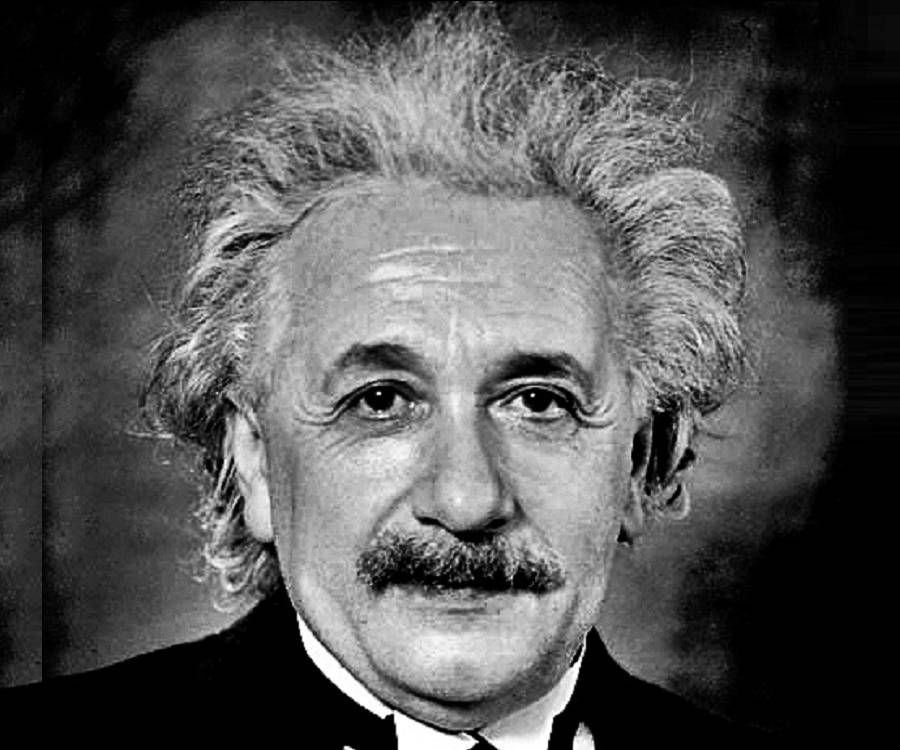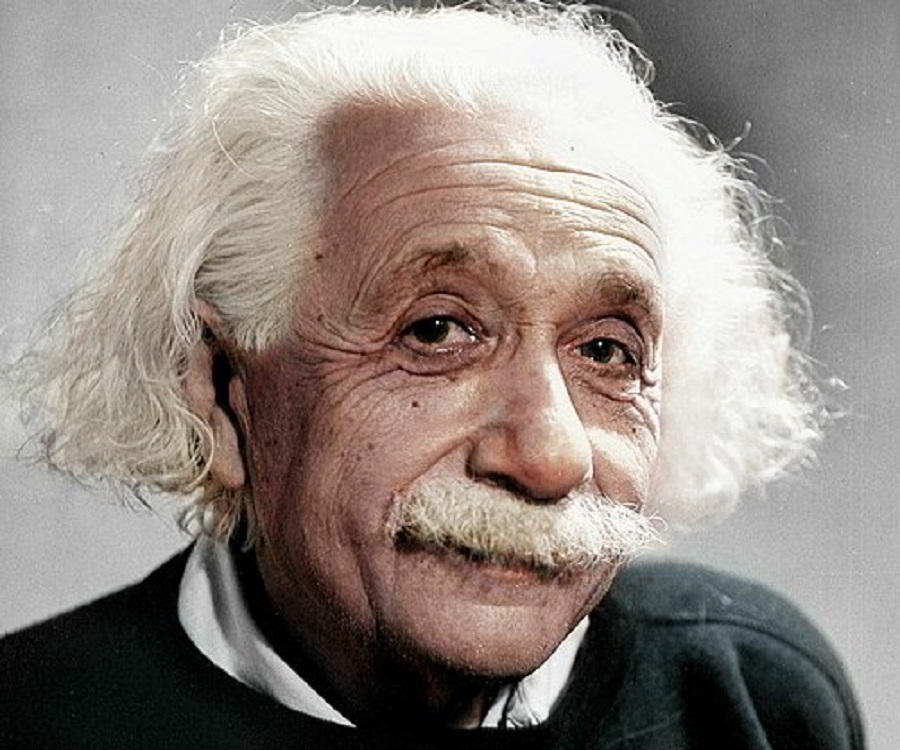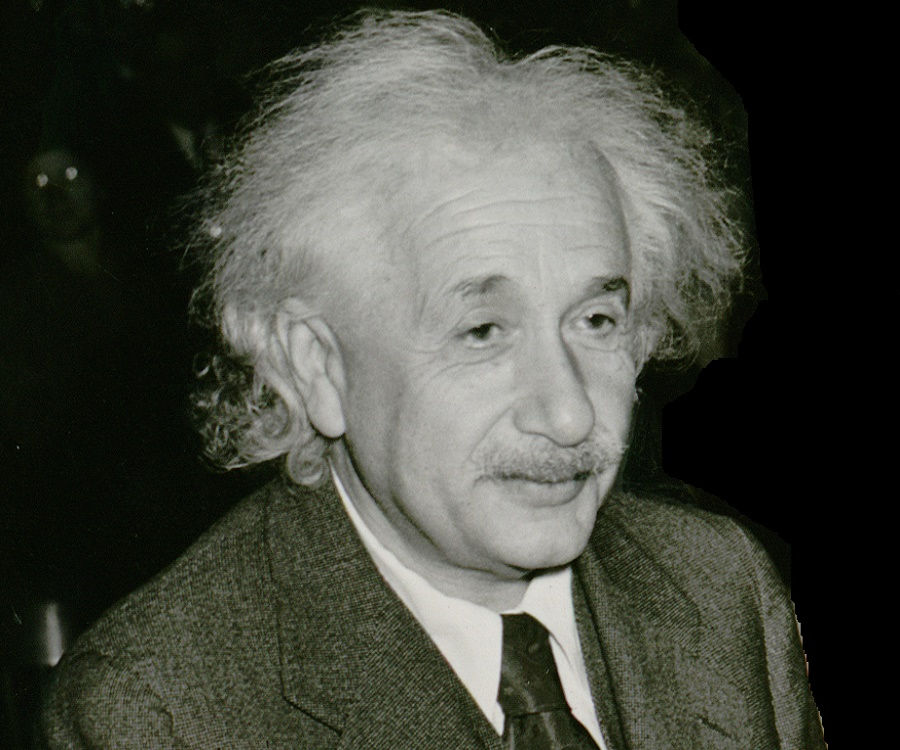Have you ever wondered about the incredible mind of Albert Einstein? So many people, you know, often ask about his intelligence. It's a question that pops up a lot, really. We're talking about someone whose very name, in a way, has become a synonym for brilliance. It’s almost like, if you want to describe someone as super smart, you just say they're an "Einstein."
Yet, for all his fame and the amazing ideas he gave us, there's a specific question that keeps coming up. People are very curious about a particular number: his IQ score. It feels like, to many, this number would somehow explain his extraordinary abilities, right? It's a natural thing to think about, I mean.
But here's a little bit of a twist, you see. Finding a definite answer to "What is Einstein's IQ?" isn't as straightforward as you might think. There isn't, in fact, a simple, official test result sitting somewhere. His story, you know, offers us a chance to look at what intelligence means, especially when we consider someone who changed how we see the universe.
- Tom Hardy Biker Movie
- Hugh Jackman Jump Rope
- Johnny Depp Movies 2025
- Patrick Stewart Dumbledore
- Tom Hanks In Castaway
Table of Contents
- Albert Einstein: A Quick Look
- The Elusive Number: Why No Official Score?
- What Does an IQ of 160 Mean?
- How Experts Estimate Einstein's Intelligence
- Beyond the Number: Einstein's True Brilliance
- Frequently Asked Questions (FAQs)
Albert Einstein: A Quick Look
Before we get too deep into the numbers, it's probably good to, you know, remember a little about the person himself. Albert Einstein was, basically, a theoretical physicist. He came up with the theory of relativity, which is a pretty big deal. He also won a Nobel Prize for his work on the photoelectric effect, which is, like, super important for how we understand light.
He was born in Germany, and later lived in Switzerland and the United States. His ideas, you know, completely changed how scientists thought about space, time, gravity, and the universe. He was, in a way, a truly unique thinker. It’s hard to overstate his impact, really.
Personal Details and Bio Data of Albert Einstein
| Full Name | Albert Einstein |
| Born | March 14, 1879 |
| Died | April 18, 1955 |
| Nationality | German (later Swiss, American) |
| Known For | Theories of Relativity, Photoelectric Effect |
| Profession | Theoretical Physicist |
| Awards | Nobel Prize in Physics (1921) |
The Elusive Number: Why No Official Score?
So, let's get right to the heart of it: What is Einstein's IQ? The simple answer is that Albert Einstein's IQ level remains speculative. There's just no verified record that he ever took a formal IQ test, you know. This means any number you hear is an estimate, more or less.
- Bradley Cooper And Jennifer Lawrence Movie
- Michael Caine Jaws
- Bryan Cranston Father
- Keanu Reeves Daughter Passed Away
- Chris Hemsworth And Chris Evans
News articles, for example, often put Einstein's IQ at 160. This number, though, doesn't really have a clear basis. It's just a figure that seems to have, you know, stuck around. It's not like he sat down for a test and got a certificate, which is what most people might assume.
The fact that he never officially took a Mensa IQ test is also part of this. Mensa, as you might know, requires an IQ score in the top 2% to join. Since he never took their test, or any standardized one, his potential membership, or even his score, is just a guess, basically.
Early Days of IQ Testing
It's important to remember the time period we're talking about, you see. Albert Einstein emerged as a brilliant mind in the early 1900s. Back then, IQ testing was still in its early stages. It wasn't, you know, a widespread or standardized practice like it is today. So, the tests themselves were quite different, and not as refined, you know, as modern ones.
The very idea of measuring intelligence with a single number was, in some respects, quite new. The tools and methods for assessing a person's smarts were still being developed. So, the opportunity for someone like Einstein to take a test that would be considered valid by today's standards just wasn't really there. It's a bit like trying to measure something with a very new, maybe not fully perfected, instrument, you know.
This historical context is really important when we think about What is Einstein's IQ? If he had lived today, things might be different. But back then, the options for a formal intelligence assessment were, you know, very limited. That's why we're left with estimates, apparently, rather than concrete data.
The Nature of Historical Estimates
Since there's no actual test score, any figure for Albert Einstein's IQ is, basically, an estimate. These numbers are largely derived from his achievements in physics. People look at the incredible things he did, the theories he created, and then try to, you know, assign a number that would fit such a mind. It's a bit like working backward, you know.
According to some sources, Einstein's IQ was probably about 160. This is commonly considered a genius level. Other estimates, based on biographical data, place his IQ anywhere between 160 and 180. Some experts have even postulated his IQ to be approximately between 160 and 190. This range, apparently, lies within the typical spread for such estimates.
These figures, you know, are based on looking at his life, his work, and comparing his intellectual output to what we know about people with very high IQs. It's a way of trying to quantify something that was never formally measured. It's an educated guess, you see, but a guess nonetheless.
What Does an IQ of 160 Mean?
Let's say, for a moment, that the estimate of 160 is more or less correct. What does that number actually mean in the grand scheme of things? Well, an IQ of 160 is, very, very high. It places a person firmly in the "genius" rank, according to most ways of looking at it.
To give you some perspective, a score of 135 or above puts a person in the 99th percentile of the population. That means only one out of every hundred people would score that high or higher. An IQ of 160 is even more rare than that, you know. Albert Einstein's IQ, estimated at around 160, places him in the top 1% of the global population, which is, like, incredibly rare.
So, even as an estimate, it certainly suggests a mind that was, you know, truly exceptional. It's not just a little bit smart; it's a whole different level of intellectual capability, apparently. This number, if true, really points to an extraordinary capacity for thought and problem-solving.
The "Genius" Label
When we talk about an IQ of 160, we're talking about what is commonly called "genius" level. This isn't just a casual term, you know. It usually refers to someone with exceptional intellectual ability, particularly in areas like creativity, problem-solving, and abstract thought. For someone like Einstein, this label seems, you know, pretty fitting.
The "genius" category isn't just about knowing a lot of facts. It's more about how a person thinks, how they connect ideas, and how they can, you know, come up with completely new ways of looking at things. Einstein, with his revolutionary theories, certainly showed these qualities. His estimated IQ, therefore, aligns with the kind of thinking he demonstrated, basically.
It's worth noting, too, that while an IQ score can point to potential, it doesn't, you know, tell the whole story of someone's impact. Many other things, like persistence, curiosity, and a willingness to challenge old ideas, play a huge role. But the IQ estimate does, in a way, give us a numerical glimpse into his incredible mental capacity.
Comparing with Other High Scores
To put Einstein's estimated IQ of 160 into context, it's helpful to look at other well-known high scores. For instance, Marilyn vos Savant gained widespread fame in 1986. She entered the Guinness World Record category for the "highest IQ," with her IQ recorded at 228. That's, like, a really high number, you know.
She held that record until 1989. So, when you compare Einstein's estimated 160 to Marilyn vos Savant's 228, you can see there are, you know, even higher recorded scores out there. However, it's important to remember that these are different kinds of measurements. One is an actual recorded test, and the other, for Einstein, is an estimate based on his life's work.
The fact that Mensa requires an IQ score in the top 2% also helps us understand the rarity. If Einstein's IQ was around 160, he would certainly meet Mensa's requirement. He would be well within that top 2% of the population. This just reinforces how truly exceptional his estimated intelligence was, you know. It puts him in a very select group, apparently, of thinkers.
How Experts Estimate Einstein's Intelligence
Since Albert Einstein never took a formal IQ test, how do experts even come up with these numbers? It's a fair question, you know. The process involves looking at various pieces of information about his life and his work. It's not an exact science, but it's the best way to, you know, make an informed guess.
One of the main ways is by analyzing his achievements. His groundbreaking theories, his published papers, and his ability to, you know, conceptualize complex ideas are all taken into account. They look at the sheer intellectual leap he made, basically. This kind of analysis tries to gauge the level of mental horsepower needed to produce such work.
Experts have taken it upon themselves to analyze his IQ. As per such postulations, his IQ is approximately between 160 and 190. This number is largely derived from his achievements in physics. It's a way of saying, "Only someone with this level of intelligence could have done what he did," you know.
Achievements as a Measure
When we talk about using achievements as a way to measure IQ, it's about looking at the quality and originality of a person's work. For Einstein, his theories of relativity were, you know, completely revolutionary. They weren't just small improvements on existing ideas; they were entirely new ways of understanding the universe. This, you know, takes a mind that can think far beyond what's common.
His ability to, you know, challenge established scientific thought and introduce concepts that were, at first, very hard for others to grasp, speaks volumes. It's a sign of a very high level of abstract reasoning and creativity. So, when experts look at these kinds of accomplishments, they're trying to, basically, reverse-engineer the mental capacity required. It's a way of saying, "This level of output must come from this level of intelligence," you know.
The sheer impact and lasting influence of his work also play a part. His ideas are still, you know, fundamental to modern physics. This suggests a deep and profound understanding, a kind of foresight that is characteristic of truly exceptional intellects. So, the achievements themselves become, in a way, the evidence for his high intelligence.
Biographical Analysis
Another method used to estimate Albert Einstein's IQ involves biographical data. This means looking at his personal writings, his letters, his early life, and even anecdotes from those who knew him. It's about piecing together a picture of his intellectual habits and thought processes. For example, his reported early struggles in school, followed by his later breakthroughs, can offer clues, you know.
According to estimates by means of biographical data, Albert Einstein's IQ has been estimated to sit anywhere between 160 and 180. This would firmly place the physicist in the "genius" category. It's about looking for patterns of thought, the speed at which he grasped complex ideas, and his unique approach to problems. It's a more qualitative way of estimating, basically, his intelligence.
This kind of analysis tries to understand the person's mental makeup from various angles. It's not just about what they produced, but how they lived, how they learned, and how they interacted with ideas. It's a holistic approach, you know, to try and put a number on something that was never directly measured. It's a bit like, you know, drawing a portrait of his mind.
Beyond the Number: Einstein's True Brilliance
While the question "What is Einstein's IQ?" is certainly interesting, it's perhaps even more important to look beyond the number itself. Albert Einstein's IQ number is estimated to be around 160, which is well above the average IQ and places him firmly in the genius rank. But his true brilliance was, you know, more than just a score.
His capacity for imagination, his persistent curiosity, and his willingness to question everything were, you know, just as vital as his raw intelligence. He wasn't afraid to think differently, to challenge the accepted wisdom. This kind of mental courage is, in some respects, just as important as a high IQ for making truly groundbreaking discoveries.
He had a unique way of visualizing problems, of thinking in pictures rather than just words or numbers. This ability, you know, allowed him to see connections that others missed. So, while the IQ estimate gives us a glimpse into his processing power, his actual impact came from a combination of many different mental traits. Learn more about intelligence on our site, and you can also find out more about famous scientists and their discoveries.
Frequently Asked Questions (FAQs)
Did Albert Einstein ever take an IQ test?
No, Albert Einstein never officially took an IQ test. His IQ level remains speculative, as he never underwent a formal assessment. IQ testing was still in its early stages in the early 1900s when he became prominent, so the opportunity for a standardized test simply wasn't available to him, you know.
What is considered a genius IQ score?
A genius IQ score is generally considered to be around 140 or above, though definitions can vary slightly. An IQ of 160, which is often estimated for Albert Einstein, is commonly considered genius level. A score of 135 or above, for example, puts a person in the 99th percentile of the population, which is, like, very high.
How accurate are estimates of historical figures' IQs?
Estimates of historical figures' IQs are, basically, speculative and should be viewed with caution. They are largely derived from a person's achievements, writings, and biographical data, as there are no actual test results. While these estimates, you know, give us a rough idea, they are not precise measurements like a modern IQ test would provide. For more on historical estimates, you might look into academic studies on the subject, like those found on Britannica, for instance.
Related Resources:



Detail Author:
- Name : Hank Ruecker III
- Username : fschmidt
- Email : swelch@gmail.com
- Birthdate : 1973-11-30
- Address : 842 Rebeka Pass West Malcolm, MT 84348-4018
- Phone : +14145777360
- Company : Kohler-Williamson
- Job : Freight and Material Mover
- Bio : Enim voluptates ab quis quisquam nobis nulla aut eveniet. Molestiae ut provident ut facilis molestiae. Officiis id totam sunt qui velit. Distinctio blanditiis maiores cum doloribus.
Socials
tiktok:
- url : https://tiktok.com/@liliana_hermiston
- username : liliana_hermiston
- bio : Laudantium magnam ut quia asperiores deserunt quis architecto.
- followers : 5833
- following : 1094
facebook:
- url : https://facebook.com/liliana.hermiston
- username : liliana.hermiston
- bio : Et voluptas voluptas necessitatibus sunt facere ut. In autem sed velit aut.
- followers : 6985
- following : 1151